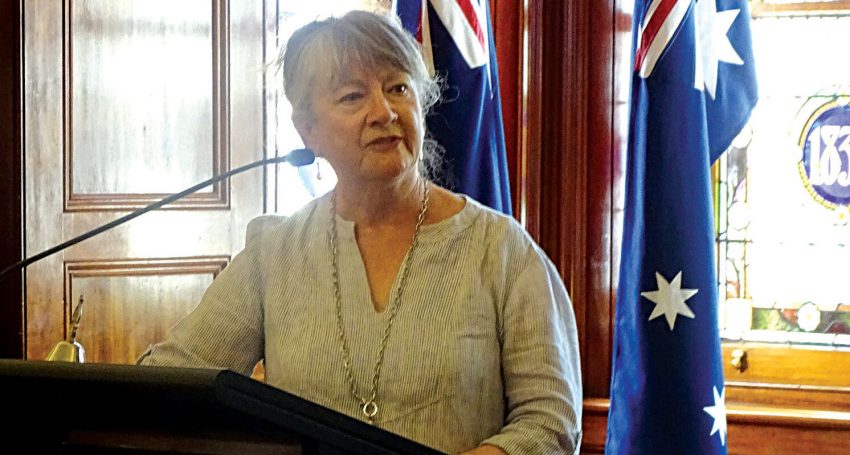Justice and Compassion – Shaping Australia’s Future
National
A safety net for all Australians, housing security, improving the wellbeing of Aboriginal and Torres Strait Islander peoples and more assistance for refugees and asylum seekers should be priority election issues according to the St Vincent de Paul Society.

The Society’s SA president Geraldine Hawkes and vice president (advocacy) Jennifer Harvey are encouraging people to read the Society’s national Justice and Compassion Statement highlighting these issues.
The Statement was released following the announcement of the 2025 Federal Election date of May 3.
It outlines four priority areas, informed by Catholic Social Teaching, based on social justice principles and latest research: Supporting a safety net for all Australians; Housing security across the country; Meeting the needs of First Nations people; and Rising to the refugee challenge.
In releasing the Justice and Compassion Statement the Society’s national president, Mark Gaetani, said the focus is on addressing the root causes of disadvantage and poverty, reducing inequality and empowering people to help them achieve their full potential.
“People will likely hold varying opinions on the forms that justice and compassion should take and that is only to be expected in a democracy,” he said.
“As members of the St. Vincent de Paul Society, we live our Vincentian vocation by being the voice of the voiceless and advocating on behalf of our Companions.
“Sometimes this means challenging the ‘status quo’, discussing matters that are uncomfortable and that others might not want to hear.’”
The Justice and Compassion Statement and supporting information can be found at Justice and Compassion | St Vincent de Paul | Vinnies.
Below is a summary of the key points.
Supporting a safety net for all Australians.
Every day, the Society’s 45,000 members and volunteers and over 3,000 staff respond to calls from those in need. Around 3.3 million people, including 774,000 children, are living in poverty, relying on inadequate social security. These are children whose parents are struggling to maintain an affordable roof over their heads.
Almost 850,000 people on JobSeeker (Dec 2024) are living on a fortnightly income that is around $150 below the poverty line. The Society is particularly concerned about children growing up in poverty and the associated impact on their development, potentially reducing good health, education and social outcomes.
The Society calls for measures to create a more robust safety net for all Australians, including an increase to the base rate of working age payments to lift recipients out of poverty; income support payments indexed biannually in line with wage growth or CPI; an increase to the earnings threshold of income support recipients and increased access to medical bulk billing services.
Housing security across the country
The Society’s services are in daily contact with people who are homeless and members and volunteers hear their stories. What stands out is how twists of fate, like an accident, a health event, relationship breakdown or job loss, can utterly change someone’s life.
On any given night, more than 122,000 Australians are homeless. The Society’s combined state and territory Councils represent one of the largest providers of community housing in Australia, offering emergency, short and longer-term accommodation options.
In order to reduce housing stress, the St Vincent de Paul Society has identified the need for increased needs-based funding of homelessness services and permanent supportive housing, including client-led support services; continued increased funding of Commonwealth Rent Assistance; funding and policies that improve energy efficiency in low-income households; reductions in capital gains tax discounts and review of negative gearing.
Meeting the needs of Aboriginal and Torres Strait Islander peoples
When visiting Alice Springs in 1986 Pope John Paul II said: ‘What has been done cannot be undone. But what can now be done to remedy the deeds of yesterday must not be put off till tomorrow.’
The Society stands in respectful solidarity with Aboriginal and Torres Strait Islander peoples and honours their rights to live in a society free of economic, social and cultural discrimination.
Measures the Society calls for to improve the wellbeing of Aboriginal and Torres Strait Islander peoples include full implementation of the National Agreement on Closing the Gap. The Society also calls for programs and services that support justice reinvestment and keep Indigenous children safe; and supports the Australian Human Rights Commission’s call for urgent investment in community-led solutions.
Rising to the refugee challenge
Advertisement
Pope Francis has expressed particular concern for people fleeing war and persecution, and continues to call on the global community to welcome and protect them.
In South Australia, the Vinnies Refugee and Asylum Seeker Service (VRASS) provides emergency relief and other assistance to people seeking asylum who are on temporary, short-term bridging visas. VRASS notes that the main issues experienced by the people they assist are chronic mental and physical health problems due to living in a state of uncertainty for many years, and with the constant threat of being sent back to the countries from which they fled.
The Society calls for an adequate safety net for all asylum seekers and a fairer process for all affected by the unjust fast track process; resettlement of people still subject to offshore processing and people held in PNG and Nauru to be immediately moved to Australia while they await resettlement; and increases to the annual humanitarian intake and the community support program.
The St Vincent de Paul Society nationally calls for Government policies that are just and compassionate, robust, evidence based and directed to areas of greatest need.
These policy positions are informed by the experiences of those the Society assists and our members, and by our extensive evidence base in social policy and various research projects commissioned by the Society.










